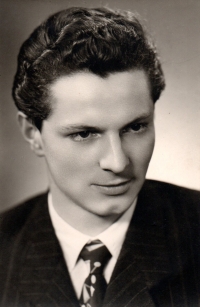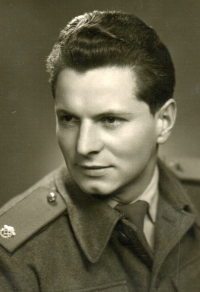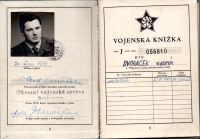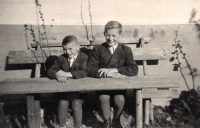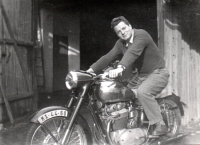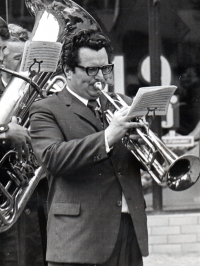Don’t do unto others...

Download image
Vladimír Dvořáček was born on the 29th of November in 1936 in Velenov near Boskovice. When he was a child, he suffered a grave illness and he was left with permanent heart damage and worsened vision. During the WWII, resistance operated around the village and after their hideout was revealed, Vladimir’s aunt and uncle, Josef and Marie Krejčíř, were executed by the Nazis in April 1945. After graduating from high school, Vladimír went to study Russian and Arts at the Faculty of Education. When he served in the army in Uherské Hradiště, the military counter-intelligence contacted him several times and he had to contact captain Oldřich Babula, mostly about private Josef Strachwitz. Archive of Security Services lists him as an agent of the secret police but no files are preserved. In 1960, he married Marie Dyčková and their two sons were born, Vladimír a Libor. For all his life, he worked as a teacher and as a vice-headmaster at the basic school in Knínice and in Boskovice. He admits that after the events of 1968, he kept his mouth shut and stood the line even though he disagreed with the occupation. He was interested in the WWII resistance, he contacted some of the resistance fighters, he visited the Soviet Union but he disagreed with the official history of the resistance and its one-sided presentation. He played in a brass band, he designed and made decorations for various festivals, he became the chairman of the local branch of the Union for Czechoslovak – Soviet Friendship. He welcomed the events of 1989 with a great relief. In 1997, he retired. He now lives in Boskovice.
